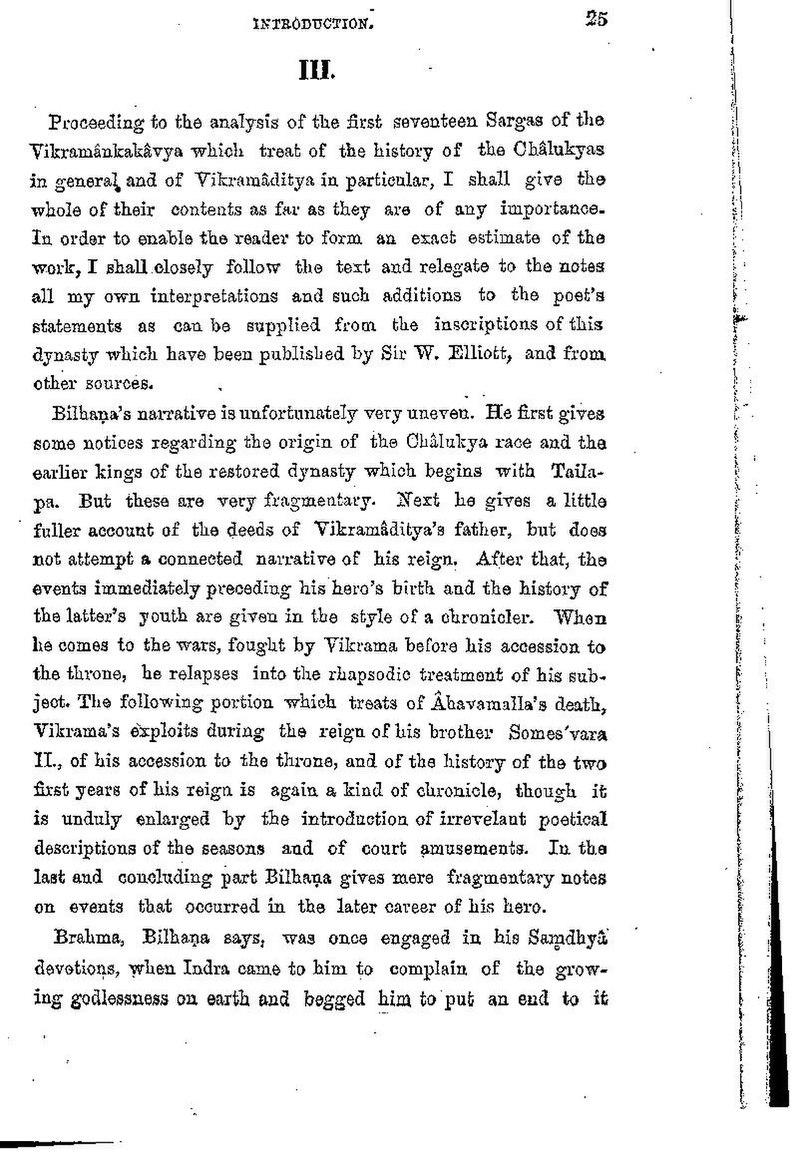INTRODUCTION.
25
III.
Proceeding to the analysis of the first seventeen Sargas of the
Vikramânkakâvya which treat of the history of the Châlukyas
in general and of Vikramaditya in particular, I shall give the
whole of their contents as far as they are of any importance.
In order to enable the reader to form an exact estimate of the
work, I shall closely follow the text and relegate to the notes
all my own interpretations and such additions to the poet's
statements as can be supplied from the inscriptions of this
dynasty which have been published by Sir W. Elliott, and from
other sources.
Bilhana's narrative is unfortunately very uneven. He first gives
some notices regarding the origin of the Châlukya race and the
earlier kings of the restored dynasty which begins with Taila-
pa. But these are very fragmentary. Next he gives a little
fuller account of the deeds of Vikramaditya's father, but does
not attempt a connected narrative of his reign. After that, the
events immediately preceding his hero's birth and the history of
the latter's youth are given in the style of a chronicler. When
he comes to the wars, fought by Vikrama before his accession to
the throne, he relapses into the rhapsodic treatment of his sub-
ject. The following portion which treats of Ahavamalla's death,
Vikrama's exploits during the reign of his brother Somes'vara
II., of his accession to the throne, and of the history of the two
first years of his reign is again a kind of chronicle, though it
is unduly enlarged by the introduction of irrevelant poetical
descriptions of the seasons and of court amusements. In the
last and concluding part Bilhana gives mere fragmentary notes
on events that occurred in the later career of his hero.
Brahma, Bilhana says, was once engaged in his Sandhya
devotions, when Indra came to him to complain of the grow-
ing godlessness on earth and begged him to put an end to it
पृष्ठम्:विक्रमाङ्कदेवचरितम् - बिल्हण.pdf/२९
एतत् पृष्ठम् अपरिष्कृतम् अस्ति

